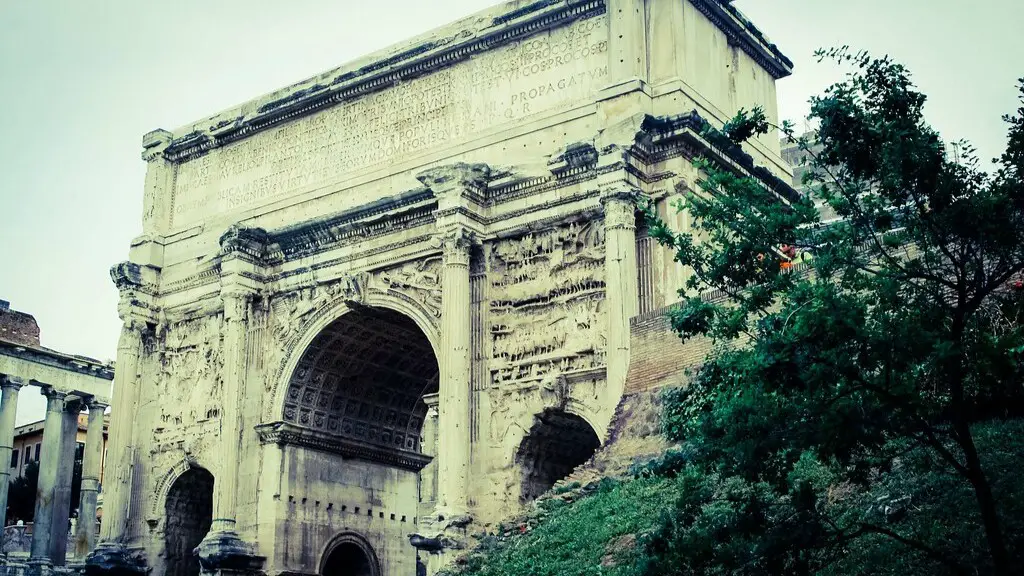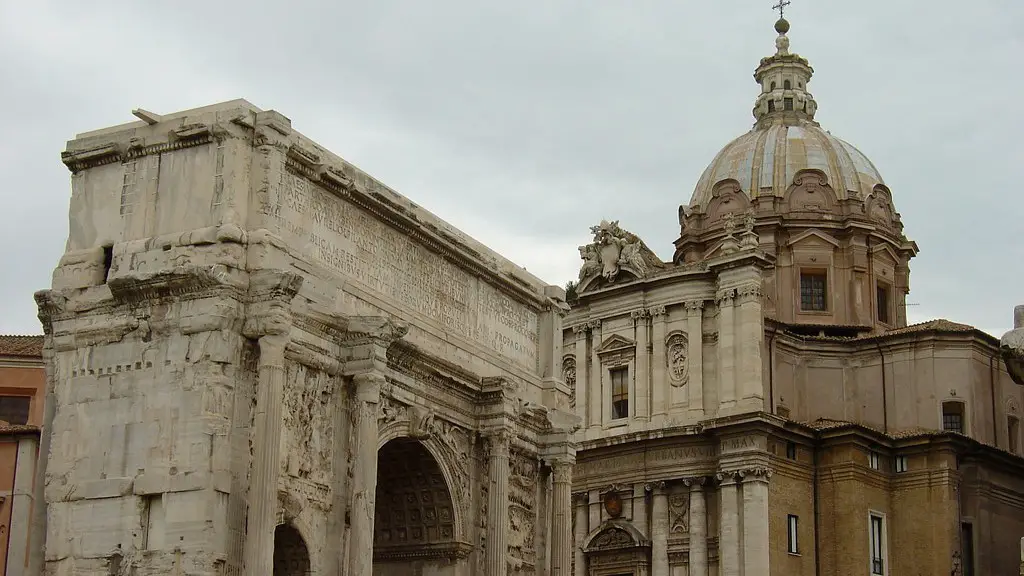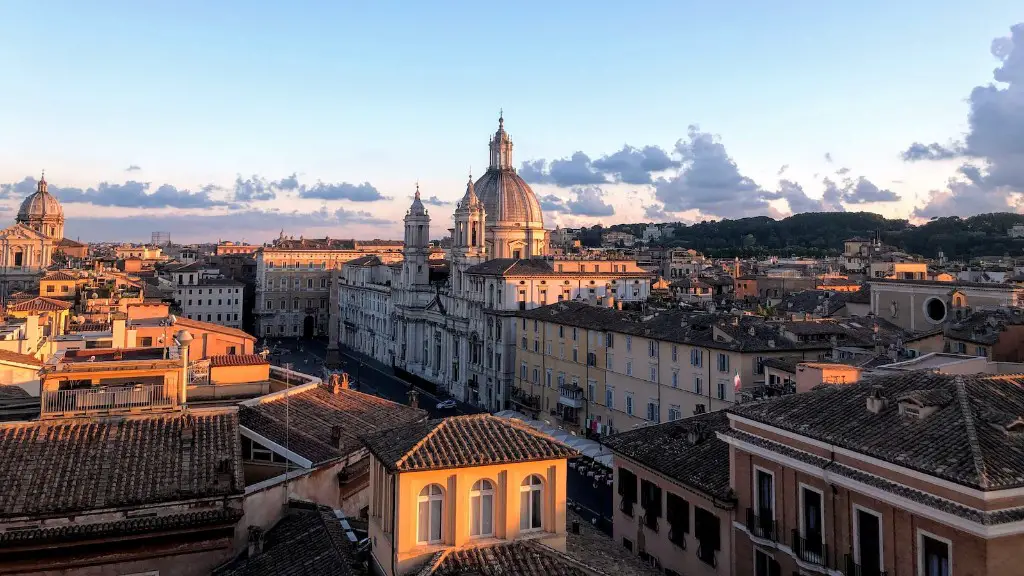In ancient Rome, the concept of paterfamilias or “father of the family” was an essential element in the structure and organization of society. This concept was applied to virtually all aspects of life, from religious and legal issues to everyday customs and tradition. Generally, the role of the paterfamilias in society was to act as head of the family, providing leadership, guidance and support for both the immediate family and their extended family members.
The term “paterfamilias” itself dates back to Roman times when it was used to refer to the highest male authority in the family. This term translates literally as “father of the family” and denotes the highest male figure in each Roman family. This figure had certain duties and responsibilities, as well as certain privileges. For example, in Roman society, the paterfamilias was the one who held the power of life and death over his family, and he was also the one who had final say in any major decisions that the family made.
The paterfamilias was an important figure in the functioning of the Roman state as well. He was expected to attend public meetings and was responsible for representing his family in public matters. He also had the responsibility of overseeing the finances of the family, as well as acting as judge and jury in any problems or disputes that arose in the home. He was also responsible for the moral training of the children in the family, teaching them the values and ways of the Roman society.
In addition to the more mundane aspects of the paterfamilias’ role in ancient Rome, there were also deeper spiritual and cultural elements. He was seen as a sort of guardian spirit of the family, protecting them from harm and providing guidance and support in tough times. He was respected as a figure of wisdom and authority and was therefore seen as an intermediary between his family and the gods of Rome. This reverence for the paterfamilias was especially evident in religious ceremonies and rituals, where the father was seen as a leader and a role model for his children.
The role of the paterfamilias in ancient Rome was perhaps best epitomized by the Roman poet and statesman, Virgil, who wrote, “Sic dictum paterfamilias, patriaeque maxime causa,” which translates to “Thus spoke the paterfamilias, the most important cause of the fatherland.” This quote serves as testament to the immense importance and respect that the paterfamilias held in ancient Rome.
Impacts of the Paterfamilias in Ancient Rome
The importance and influence of the paterfamilias in ancient Rome had a profound impact on the structure and functioning of the society. The paterfamilias was the head of the family and was expected to act responsibly and make wise decisions, thus setting an example for the rest of the family to follow. This helped to foster a sense of loyalty, unity and respect within the family, which eventually extended to the wider society.
The paterfamilias also had a huge influence within the legal system, as he was expected to arbitrate cases that arose within his own family and also pass judgment on matters outside of his family. This system of legal mediation greatly reduced the need for courts and lawyers, adding to a sense of order and organization within Roman society.
The concept of the paterfamilias was also integral in matters of religion. As the bridge between the gods and the human world, the father held a special place in the spiritual life of the family. It was his responsibility to ensure that the family performed the correct rituals and sacrifices to the gods, and to ensure that everyone was living a pious life in accordance with the teachings of the gods. These teachings were believed to bring blessings and prosperity to the family, and were thus held in high regard.
Changes Over Time
The role of the paterfamilias gradually changed over time, as the structure and function of Roman society changed. As the state began to expand, the power of the individual families declined and the power of the central government grew. This led to a decrease in the importance of the paterfamilias, as he was no longer seen as a leader of the family but rather as a provider for the family. In addition, economic and political changes across Europe changed the way families viewed their lives and responsibilities, leading to a decrease in the paternal authority of the paterfamilias.
By the end of the Roman Empire, the role of the paterfamilias was largely ceremonial. While he still possessed certain rights and privileges, such as the right to sit on the Senate and advise the Emperor, the role was no longer the influential force that it once was in Roman society. As a result, the concept of the paterfamilias slowly faded away, and the modern idea of the ‘father of the family’ was born.
The Role of the Paterfamilias in Modern Day Society
The concept of the paterfamilias is still alive and well in modern day society, although it is much different than it was in Roman times. In families today, it is generally the mother, rather than the father, who is seen as the head of the family and is expected to provide guidance and support to both her immediate and extended family. While it is important for the father to provide financial stability and provide for his family, it is now the mother who is viewed as the leader and primary influence in the running of the household.
In addition, modern society has embraced wider views on gender roles and parenting, leading to more women taking on leadership roles and becoming more financially independent. This has changed the traditional family dynamic, making it less hierarchical and more democratic. As a result, the father of the family is now seen as just one of many voices in the household, rather than the lone authoritative figure that he was in Roman times.
The Influence of the Paterfamilias on Subsequent Societies
While the notion of the paterfamilias may no longer exist in the same form that it did in Roman times, its influence can still be seen in both ancient and modern societies. The idea of a single figure providing direction, leadership and guidance for a family or group is a concept that is still prevalent in many parts of the world. The idea of the father as a role model and authority figure is also still seen in many contemporary societies, although it is not as tightly bound to legal and religious systems as it was in Rome.
The modern family has also evolved in response to the changing needs and dynamics of society. The idea of the father as the sole head of the family has been replaced by the more modern notion of the dual-earner family, where both the mother and father are expected to contribute to the financial security of the family while sharing child-rearing responsibilities. This serves to equalize the roles and responsibilities of both sexes, helping to create a more balanced and harmonious home environment.
Conclusion
The role of the paterfamilias in ancient Rome was of great importance and influence. This role was integral to the functioning of both the family and the broader society, providing a structure by which relationships and social norms could be established. Although the role of the paterfamilias has changed over time, its influence can still be seen in modern day societies and its teachings are still relevant in today’s world.



